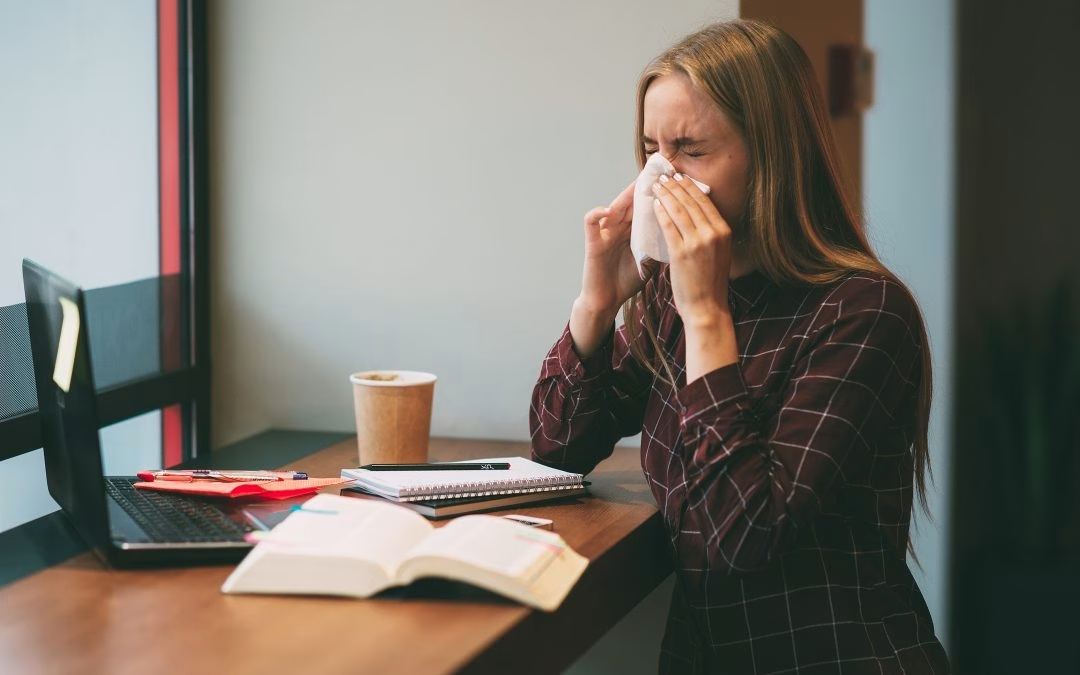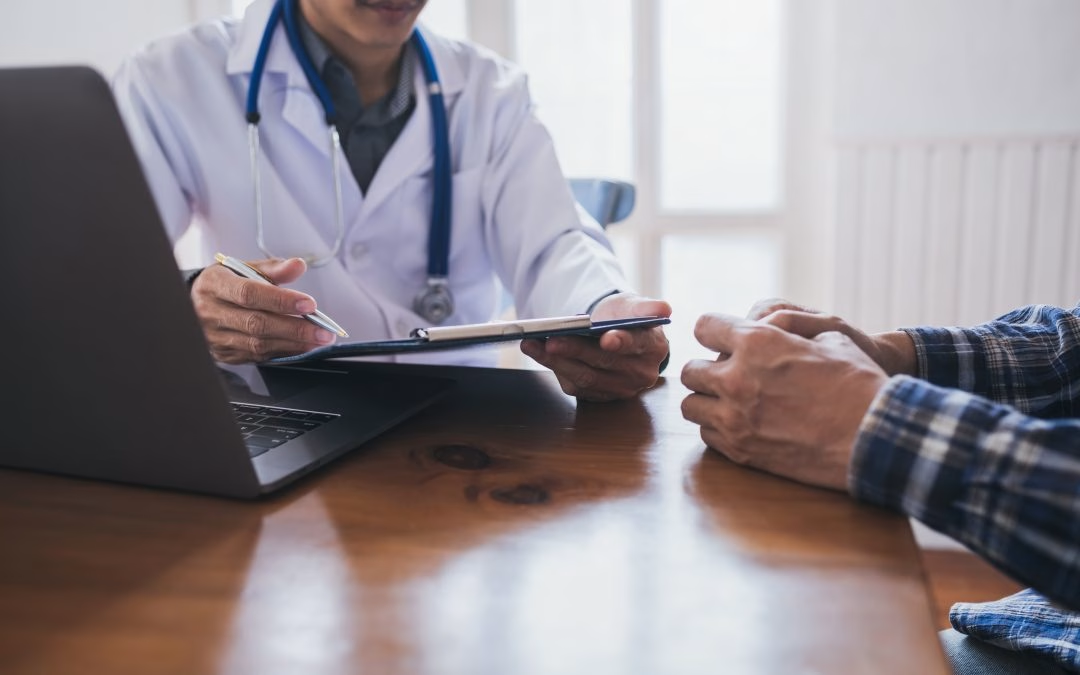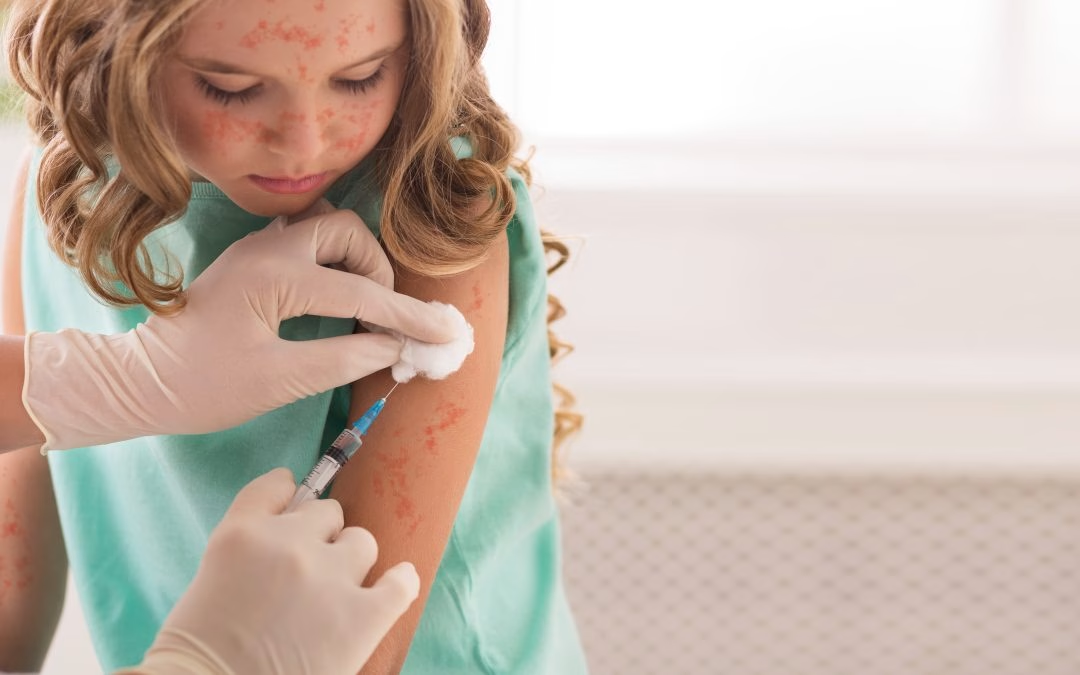
The impact of COVID-19 is something we can all relate to in one way or another. We understand how quickly symptoms can surface after being exposed, highlighting the importance of being proactive about our health and that of others. You can go for milkshakes at Ooltewah Whistlestop, visit an indoor playground another, stop by family the next, and then get a call from family saying they’re sick and you might be too. Most of us are familiar with the steps to take after such news, but that waiting period between exposure and the onset of symptoms can be quite unsettling.
If you believe you are experiencing COVID symptoms, visit Ooltewah for a rapid test.
When Do Symptoms Appear?
COVID-19 symptoms typically emerge within 2 to 14 days following exposure to the virus, which is known as the incubation period. On average, you can expect symptoms to appear about 5 to 6 days post-exposure. It’s important to remember that these symptoms can differ depending on the specific strain of the virus and whether you’ve been vaccinated.
Common Signs and Symptoms
Symptoms of COVID-19 can vary widely, ranging from mild to severe, and they typically begin gradually, with some cases worsening over time. Here are some of the most commonly reported symptoms:
- Fever or chills
- Cough
- Shortness of breath or difficulty breathing
- Sore throat
- Congestion or runny nose
- New loss of taste or smell
- Fatigue
- Muscle or body aches
- Headache
- Nausea or vomiting
- Diarrhea
It’s important to remember that this list doesn’t cover all possible symptoms. As new variants of COVID-19 emerge, the symptoms may change, and your vaccination status can also influence how symptoms present.
COVID-19 in 2024
As we move into 2024, COVID-19 is still a significant concern. As new variants emerge and the virus continues to spread, staying vigilant about symptoms and understanding the timeline for their appearance is more important than ever. Whether or not you’ve been vaccinated, monitoring your health closely is vital, especially following any potential exposure.
What Should I Do If I Think I Have COVID?
Should you experience any symptoms, even mild ones, it’s essential to stay home and minimize contact with others, including household members who are healthy. Some symptoms might be mild at first, but they can progress to more severe illness, especially in individuals with underlying health conditions.
For those at higher risk of severe illness, it’s vital to seek healthcare promptly for testing and treatment. Early care can lower the risk of serious complications.
When to Seek Medical Attention
Certain symptoms will warn you to find immediate medical attention. If you or someone you know experiences any of the following emergency warning signs for COVID-19, seek help right away:
- Trouble breathing
- Persistent pain or pressure in the chest
- New confusion
- Inability to wake or stay awake
- Pale, gray, or blue-colored skin, lips, or nail beds (depending on skin tone)
COVID-19 vs. Flu
Both COVID-19 and the flu are contagious respiratory illnesses, but they are caused by different viruses. COVID-19 is caused by the SARS-CoV-2 virus, while the flu is caused by various influenza viruses. Because the symptoms often overlap, it can be tricky to tell them apart based on how you feel.
Fortunately, certain tests, like PCR tests, can differentiate between COVID-19 and the flu. Our dedicated team at Ooltewah is ready to sit down with you, assess your symptoms, and determine the best course of treatment, whether you’re experiencing COVID-19 or the flu.
Remember, we also offer flu shots at our urgent care for the upcoming season, so be sure to get yours!
Visit Us Today
Knowing the timeline for when COVID-19 symptoms might appear is crucial for taking proactive measures to safeguard your health and that of others. If you’re not feeling well, it’s best to stay home and get tested. And if your symptoms escalate, don’t delay in reaching out for medical care.
If you are concerned about contracting COVID-19, visit AFC Urgent Care Ooltewah for COVID-19 testing.


